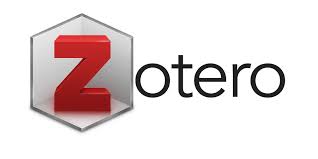Proses Pembentukan Konsep dalam Menemukan Kembali Teorema Pythagoras dan Miskonsepsi yang Terjadi dengan Pendekatan Pendidikan Matematika Realistik Indonesia (PMRI)
DOI:
https://doi.org/10.29240/ja.v1i1.762Keywords:
Misconceptions, Pythagorean Theorem, PMRIAbstract
This research aims to find out the process of concept formation in reinventing Pythagorean Theorem and to analyze the result of that process and the misconceptions that may emerge. The type of this research is qualitative research which is analyzed descriptively. This research applies class setting method in learning activity with the implementation of PMRI approach and it focuses on two subjects. The results shows that the process of concept formation in reinventing the Pythagorean Theorem with PMRI approach can work well. However, the two subjects have not been able to construct the given problem, which is in the form of a question, to be the form of a mathematical modeling. Subject 1 still processes the information rawly. Therefore, the result of concept finding with his/her knowledge used for solving problems by the same model has not been able to reduce data. Subject 2 has been able to process the obtained information and he/she can interpret the problem further. However, both subjects still experience misconceptions not only in their already possessed knowledge but also their newly acquired knowledge. Those misconceptions are misconception in calculating operation of equation system, which should be calculating operation on both segments but it is only carried out in one segment, misconception in describing hypotenuse and misconception in naming edges of a right triangle.
Downloads
References
Amir, M.F. dan Wardana, M.D.K. (2017). Pengembangan Domino Pecahan Berbasis Open Ended untuk Meningkatkan Kemampuan Berpikir Kreatif Siswa SD. AKSIOMA: Jurnal Program Studi Pendidikan Matematika, 6(2), 178-188. Retrieved from http://ojs.fkip.ummetro.ac.id/index.php/matematika/article/view/1015
Arsaythamby, V., & Zubainur, C. M. (2014). How a realistic mathematics educational approach affect students’ activities in primary schools? In Procedia-Social and Behavioral Sciences, WCPCG, 2014, 159, 309–313. Retrieved from http://doi.org/10.1016/j.sbspro.2014.12.378
Habsah, F. (2017). Developing Teaching Material Based on Realistic Mathematics Andoriented to the Mathematical Reasoning and Mathematical Communication. Jurnal Riset Pendidikan Matematika, 4 (1), 43-55. Retrieved from http://dx.doi.org/10.21831/jrpm.v4i1.10199
Hamza, K.M., dan Wickman, P. (2007). Describing and Analyzing Learning in Action: An Empirical Study of The Importance of Misconceptions in Learning Science. Science Education, 92(1), 141 – 164. Retrieved from https://doi.org/10.1002/sce.20233
Kirom, A. (2017). Peran Guru dan Peserta Didik dalam Proses Pembelajaran Berbasis Multikultural. Al-Murabbi: Jurnal Pendidikan Agama Islam, 3(1), 69-80. Retrieved from http://jurnal.yudharta.ac.id/v2/index.php/pai/article/download/893/762
Laurens, T., Batlolona, F. A., Batlolona, J. R., & Leasa, M. (2018). How Does Realistic Mathematics Education (RME) Improve Students’ Mathematics Cognitive Achievement? Eurasia Journal of Mathematics, Science and Technology Education, 14(2), 569-578. Retrieved from http://www.ejmste.com/How-Does-Realistic-Mathematics-Education-RME-Improve-Students-Mathematics-Cognitive,76959,0,2.html
Novak, J.D. (2002). Meaningful Learning: The Essential Factor for Conceptual Change in Limited or Inappropriate Propositional Hierarchies Leading to Empowerment of Learners. Science Education, 86(4), 549-571. Retrieved from https://onlinelibrary.wiley.com/doi/abs/10.1002/sce.10032
Saefudin, A.A. (2012). Pengembangan Kemampuan Berpikir Kreatif Siswa dalam Pembelajaran Matematika dengan Pendekatan Pendidikan Matematika Realistik Indonesia (PMRI). Al-Bidayah, 4(1), 37-48. Retrieved from https://jurnal.albidayah.id/index.php/home/article/view/10
Tekkaya, C. (2002). Misconceptions as Barrier to Understanding Biology. Hacettepe Oniversitesi Egitim Fakilltesi Dergisi. 23, 259-266. Retrieved from http://www.efdergi.hacettepe.edu.tr/yonetim/icerik/makaleler/971 published.pdf
Wardono, Waluya, S. B, Mariani S., & S Candra D. (2016). Mathematics Literacy on Problem Based Learning with Indonesian Realistic Mathematics Education Approach Assisted E-Learning Edmodo. Journal of Physics: Conference Series, 693. Retrieved from https://iopscience.iop.org/article/10.1088/1742-6596/693/1/012014
Downloads
Published
Issue
Section
Citation Check
License
Authors who publish with ARITHMETIC: Academic Journal of Math agree to the following terms:
- Authors retain copyright and grant the journal right of first publication with the work simultaneously licensed under a Creative Commons Attribution-NonCommercial-ShareAlike 4.0 International License (CC BY-NC-SA 4.0) that allows others to share the work with an acknowledgment of the work's authorship and initial publication in this journal.
- Authors are able to enter into separate, additional contractual arrangements for the non-exclusive distribution of the journal's published version of the work (e.g., post it to an institutional repository or publish it in a book), with an acknowledgment of its initial publication in this journal.
- Authors are permitted and encouraged to post their work online (e.g., in institutional repositories or on their website) prior to and during the submission process, as it can lead to productive exchanges, as well as earlier and greater citation of published work (See The Effect of Open Access).








